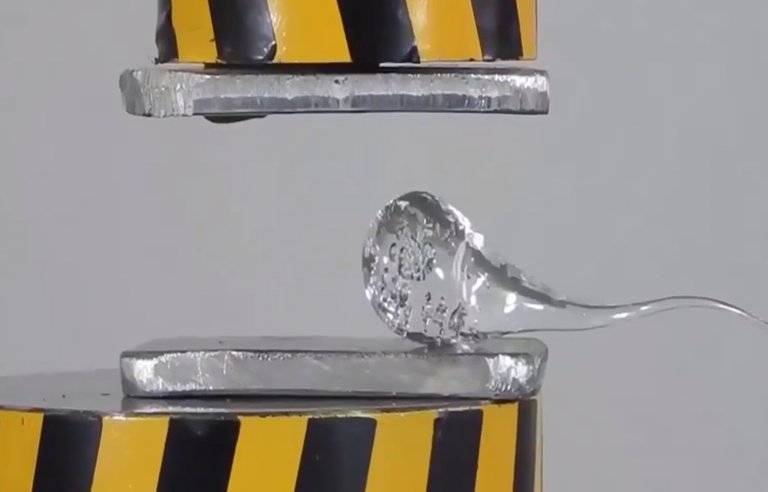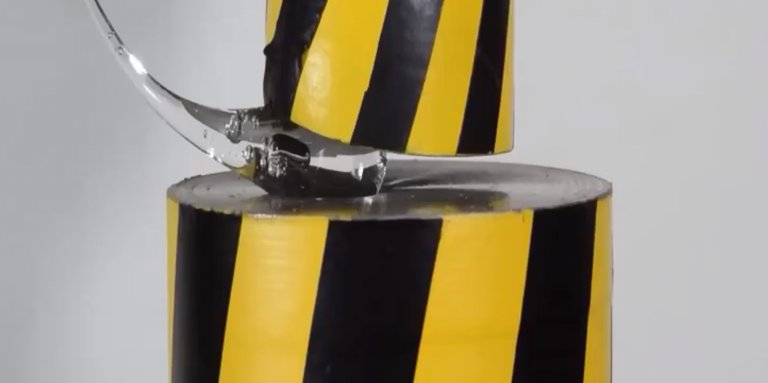This is some very strong glass….
See video below.
Prince Rupert's drops (also known as Dutch tears or Batavian tears) are toughened glass beads created by dripping molten glass into cold water, which causes it to solidify into a tadpole-shaped droplet with a long, thin tail.
These droplets are characterized internally by very high residual stresses, which give rise to counter-intuitive properties, such as the ability to withstand a blow from a hammer or a bullet on the bulbous end without breaking, while exhibiting explosive disintegration if the tail end is even slightly damaged. In nature, similar structures are produced under certain conditions in volcanic lava, and are known as Pele's tears.


The drops are named after Prince Rupert of the Rhine, who brought them to England in 1660, although they were reportedly being produced in the Netherlands earlier in the 17th century and had probably been known to glassmakers for much longer. They were studied as scientific curiosities by the Royal Society and the unravelling of the principles of their unusual properties probably led to the development of the process for the production of toughened glass, patented in 1874. Research carried out in the 20th and 21st centuries shed further light on the reasons for the drops' contradictory properties.
Source: https://en.wikipedia.org/wiki/Prince_Rupert%27s_drop
!MEME
Posted using MemeHive
Credit: fun.miner
Earn Crypto for your Memes @ HiveMe.me!